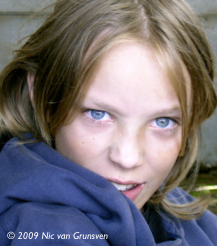 Successful Intelligence
Successful Intelligence
To be able to become ‘successful intelligent’ (Sternberg, 1996) the high-able and talented child or teenager needs to learn to balance intellectual, creative and practical intelligence.
How we can help
As parents and professionals we can support them by offering the following:
- Up to date information about high-ability and its implications.
- Offer them perspective: a world view that fits their inner experiences.
- Introduce them to the necessary often practical skills to achieve a balance between intellectual, creative and practical intelligence.
Support for Parents and Carers
Clever neurodiverse children and teenagers can be intense, sensitive and strong-willed, whether they are achieving or not, and can have challenging behaviours, even to the point one doubts his or her intelligence.
Parents and carers are sometimes at their wit’s end and don’t know any more how to deal with their child or teenager, how to respond effectively to their behaviour, how to read their needs etc.
PowerWood offers families with sensitive, intense, ‘overexcitable’, more-able neuro diverse children valuable support in many forms.
Up to date information
For high-able and talented children and teenagers it is sometimes difficult to understand themselves and the world around them because often they experience themselves, others and their world differently from their peer group. Thus their self and world view is not confirmed by their surroundings, which can be confusing in periods of transition in life, especially in puberty when peers are so very important.
Information on appropriate intellectual level will give them a deeper understanding of how high-ability can influence development and personality.
Perspective for the neurodiverse high-able
To live in a world that does not seem to correspond with personal experience can be perceived as surreal, and because of that children and teenagers can lose their sense of self and sense of the world. This can influence their drive, intrinsic motivation and joy of living dramatically.
A conducive perspective can be offered within the Theory of Positive Disintegration (TPD) developed by Dabrowski (1970) that brings comprehension and appreciation for themselves and others and encouragement to use their qualities in a positive constructive way and the motivation to use their qualities towards a better world. (Dabrowski, 1970; Daniels & Piechowski, 2009; Mendaglio, 2008; Silverman, 2000)
Necessary skills
Some important skills are thinking skills: to be able to think creatively, critically and constructively; problem solving skills; leadership skills; co-operation skills; street smart skills; communication skills: to communicate effectively during processes, express criticism in a constructive and effective way and evaluate own achievements and behaviour; organisational skills: to be able to organise one’s work and progress efficiently and last, but not least, urge and stress management.
Multilevel Emotion Regulation Theory
Multilevel Emotion Regulation Theory (MERT) is a holistic theory developed by Simone de Hoogh. The theory explains how neurodiverse (young) individuals and parents of neurodiverse children can develop emotional regulation skills and direct their energy towards self-chosen goals, and contribute to society.
PowerWood’s Community
Find understanding, tools and strategies that work in an understanding, respectful and compassionate Community.
PowerWood can be your and your families advocate and your second family.
Explore how joining our PowerWood community by becoming a member will benefit you and your family and what types of memberships are available.
Join our Community
Available to Members*
*Booking a one-off Free Introductory Talk of 45-60 minutes by Skype or FaceTime with Senior Consultant Simone de Hoogh is one of the benefits of being either a FreeBee PowerWood Community Member or a Friend PowerWood Community Member.
Book a FREE Introductory Talk with a Professional*
You can read more about PowerWood’s Consultancy Sessions, the Benefits of a Free Introductory Talk and PowerWood’s Consultancy Services Tiered Fee Structure.
*Overexcitability Test
OE (Overexcitability) is an element of a Developmental Theory –Theory of Positive Disintegration by Dabrowski- that is one of the underpinning theories of MERT (Multi-level Emotion Regulation Theory) developed by Simone de Hoogh. Overexcitability explains and allows us to look at ‘extreme’ behaviour as a valuable asset in our or our children’s life.
Find out if you or your child has OE (OverExcitability) as well
*Boundary Test
A HUGE thank YOU to the son and daughter of Ernest Hartmann’s who gave PowerWood permission to use and put the full academically approved questionnaire about the Boundary in the Mind on PowerWood’s website.
Find out how the Boundary in the Mind affects you or your child
